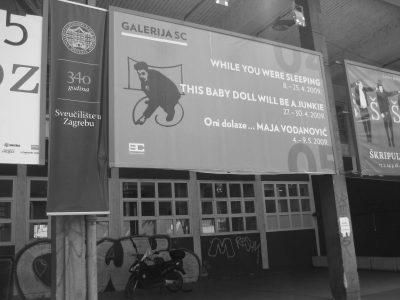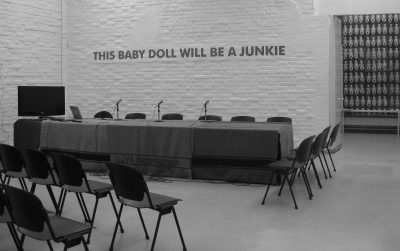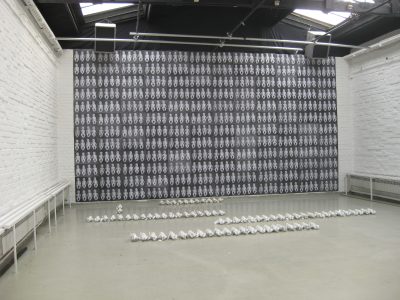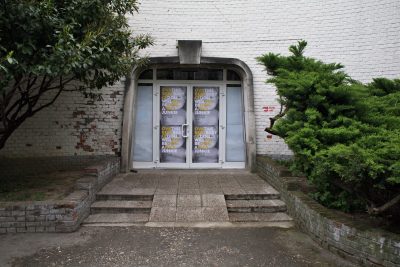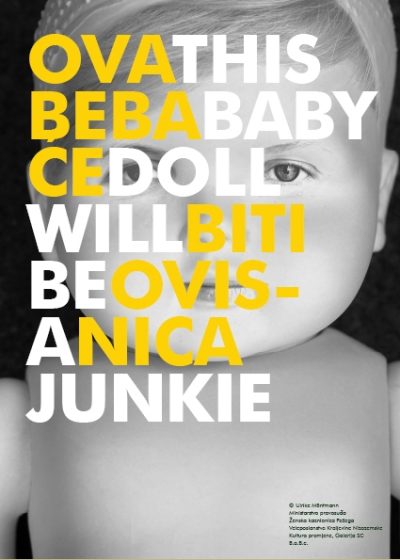Each time a section of the project is completed, the archive is exhibited in an art institution in a city of that country, together with the series of Baby Dolls that were created where each doll represents one participant and her biography. After the exhibition closes, the Baby Dolls are abandoned in public places (see THE PUBLIC SPACE).
While the exhibition is on, an Expert Meeting takes place at which representatives from the spheres of culture, subcultures, politics, and scholarship debate the themes of the project and engage with the question of how effective art interventions in social issues are or can be, by including the specific conditions prevailing in that particular country.
All the panel discussions are documented, compared, and excerpts made available in the CONTEXT section above.
Exhibition Zagreb
27 – 30 April 2009
Human Park, Galerija SC, Zagreb, HR
Expert Meeting Zagreb
27 April 2009
Galerija SC, Zagreb, HR
Participants Expert Meeting
Alexandra Landré, art historian, curator, Amsterdam, NL (Moderation)
Nataša Škaričić , journalist, Zagreb, HR (Moderation)
Vesna Babic, Ministry of Justice, Zagreb, HR
Barbara Blasin, artist, Zagreb, HR
Benjamin Erasović, sociologist, Zagreb, HR
Marta Kiš, curator, Galerija SC, Zagreb, HR
Iva Kovač, artist, Zagreb, HR
Kristina Leko, artist, Zagreb, HR
Ljubica Matijević-Vrsaljko, lawyer, specialized on human rights, Zagreb, HR
Željko Mavrović, chairman, NGO Pet +, Zagreb, HR
Karla Pudar, curator, Galerija SC, Zagreb, HR
Slavko Sakoman, psychiatrist, Zagreb, HR
Sanja Sarnavka, chairwoman NGO b.a.b.e., Zagreb, HR
Robert Torre, psychiatrist, Zagreb, HR
Maja Vučić, psychologist, Zagreb, HR
